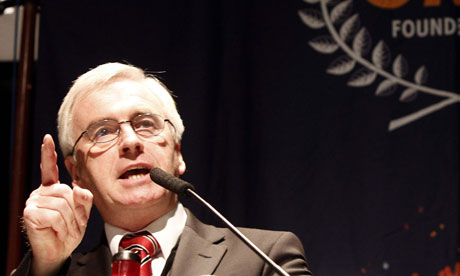I was pleased and relieved to read it. Here's why: in 2002, as part of a research project on social enterprise, I interviewed one of the co-founders of the Big Issue in the North (legally separate from John Bird's London-based magazine). (The other co-founder was Ruth Turner, who latterly worked for Tony Blair in 10 Downing Street and then for his Faith Foundation. She was arrested and interviewed by police investigating the 'cash-for-peerages' scandal, but no charges were brought)
What struck me in the interview was that this was someone running a business - indeed it was constituted as a company. I was informed that, at the time, the Big Issue in the North had a £3 million annual turnover, it had 40 employees, it had a chief executive with a company car, it had nine years of trading history, sold 60,000 magazines per week and had a £200,000 profit margin (40% of which came from advertising revenue).
What in effect this means is that a professional staff produces a magazine subsidised by the homeless vendors, who seemingly have no right to the minimum wage, and are not employed, so no health and safety protection, no paid leave, etc. Remember they're 'working not begging'- but they're working with no rights, at sub-poverty wage levels and are supporting a paid infrastructure of writers, printers, editors and admin staff. I have no hesitation in calling that exploitation. It calls itself "a business solution to a social problem". Except what does it solve - not homelessness (how could it - when it doesn't provide housing?).
The problem I have with the Big Issue is the same one I have with David Cameron (who is guest editing the next issue of the London Big Issue) and his Big Society. It's not a solution, it's a rather poor sticking plaster that moralises over the problem rather than addressing it. The cold reality is that charities and businesses cannot solve the severe social problems that capitalism causes. More than that, they neither have the power nor the intention to do so. So while politicians are destroying the welfare state (especially social security and council housing) more and more people are going to be subject to the whim of these business solutions, social enterprises or Big Society organisations.
It would be wrong to think this process began with the coming to power of the Tory-led coalition government. Labour created a social enterprise minister, and ministers promoted the concept, like Hazel Blears and Liam Byrne, who said shortly before leaving government, "In a climate of spending cuts and a need to reduce the budget deficit over the next few years, social enterprise has a huge role to play in delivering public services".
I don't deny that the Big Issue and other charities, social enterprises or social businesses can do some good and do help some people. But to pretend they are either 'the answer' or a solution is ludicrous. Unless that solution is to make more comfortably off people feel better about themselves. Then it is, as the CPGB once put it, no more than "a hypocritical belch of the well-fed bourgeoisie".
*By the way, unlike the man in the photo Big Issue vendors are instructed to stand to sell the magazine.
I leave you with the excellent 'Flag Day' by the Housemartins:






